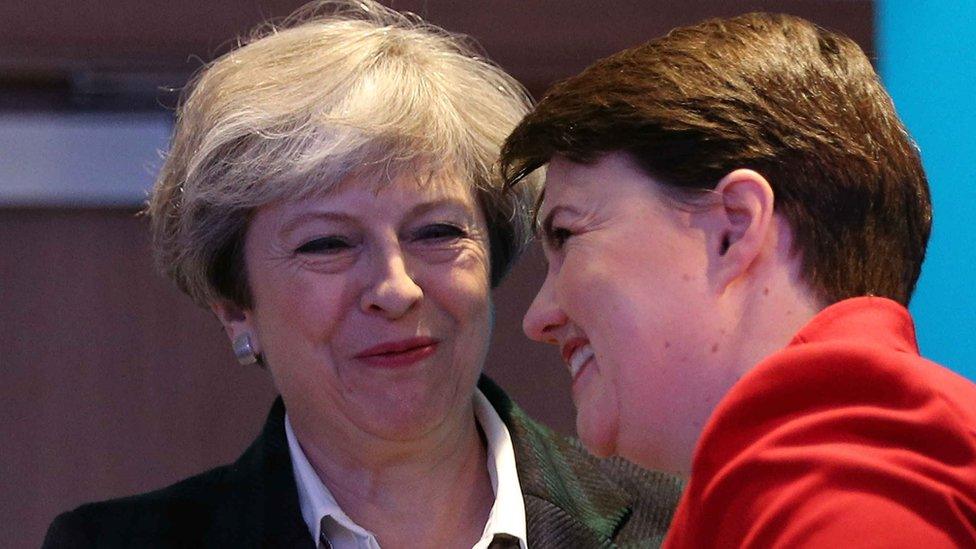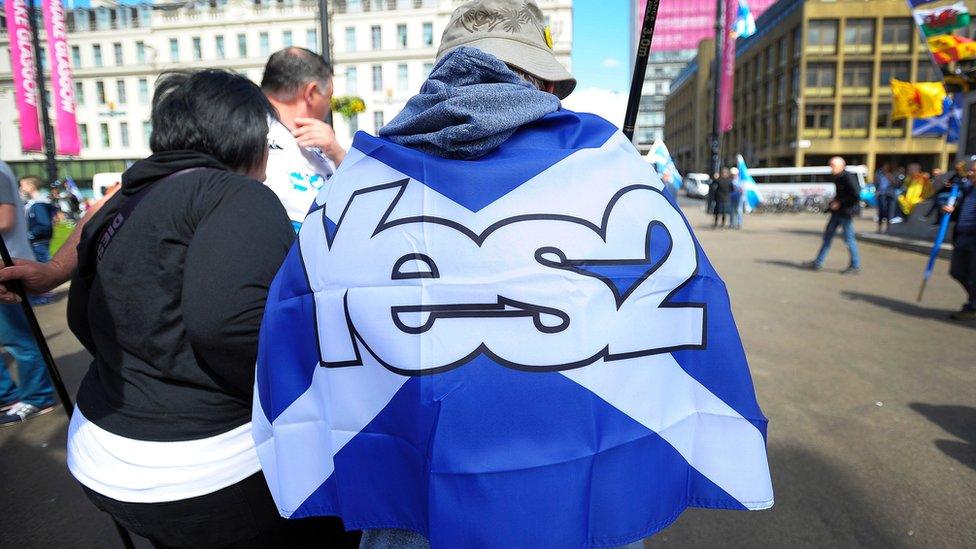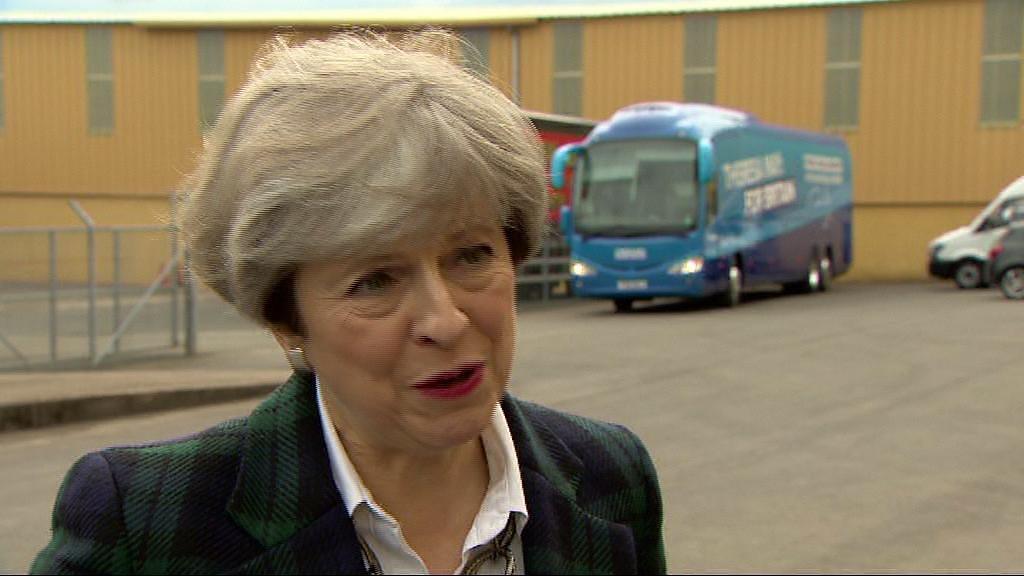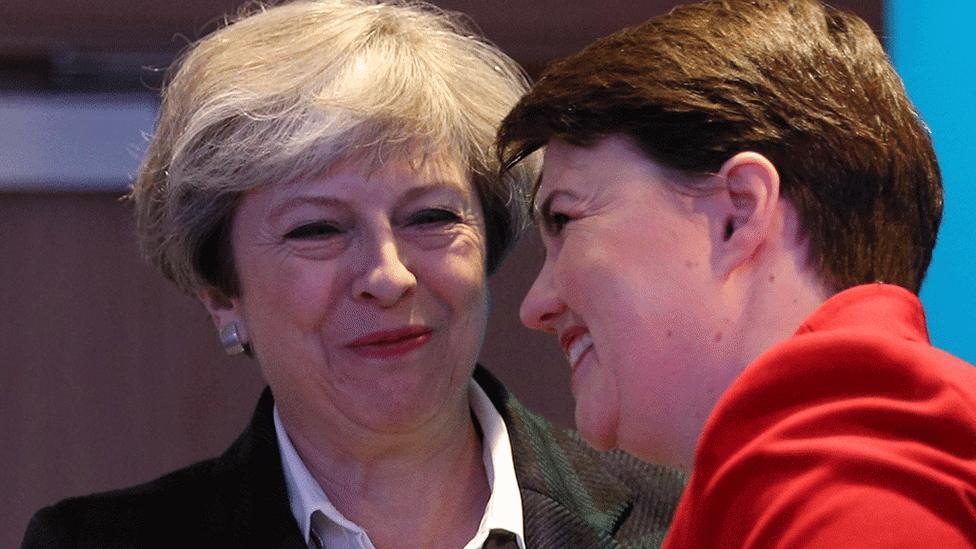Theresa May outlines her indyref double lock
- Published
Theresa May says keeping the UK together is important to her.
An election manifesto is designed to allow a party to set out what it would do if granted governmental power or, as a very minimum, Parliamentary influence.
Today's Scottish Conservative manifesto is no different, blending its offer on UK powers - as set out in the UK launch yesterday - with longer-term devolved ambitions, for example on education and housing.
But there is always room in politics for targeting the other lot. That is particularly true in this strategic election - where parties are, for example, projecting or denouncing coalition options.
The Scottish Tory launch featured two conjoined elements where the party talked explicitly about matters concerning their rivals - beyond the customary rhetoric of decrying them as useless, damaging and inept.
Firstly, the Tories in Scotland want to "bring the SNP down to size", to curb their ambitions to hold a further referendum on independence. Secondly, they want to borrow Labour votes in Scotland to help achieve that ambition.

Ruth Davidson characterised Labour as being engaged in "civil war". It might not last, she courteously added. Labour might "find its way back". But, for now, she argued that Labour was spent as an anti-SNP force in Scotland.
In essence, she urged tactical voting by Labour supporters switching to the Tories in seats where that could make a difference. For the avoidance of doubt, Labour does not share the Tory analysis nor their prescription.
But how about that issue of an independence referendum? The Conservatives have cited two criteria before indyref2 would be feasible.
'Not now'
One, after the completion of Brexit. The prime minister, David Mundell, Ms Davidson, everyone else in blue, stresses that is not just the conclusion of talks: it would involve the implementation of Brexit.
Incidentally, the PM did not envisage a direct role for the first minister in said negotiations. That would be for the UK government which she hopes to continue to lead. She would consult the Scottish government - but the bargaining with the EU would be conducted by the departing member state.
And that meant the UK, led by either her or Jeremy Corbyn.
But back to the question of indyref2. If it has to await the conclusion of Brexit, how long would that take? Two years negotiations? Maybe longer, if the EU 27 agree? How long for implementation? One year? More? Much more?
The participants at today's launch decline to say.

And the second criterion? That is evidence of consent, evidence of a desire by the Scottish people to be asked about independence once more.
But how, the wicked media asked at the launch, is that to be measured? Opinion polls? The outcome of the current election in Scotland?
Further, I asked that question again when I interviewed the PM in East Lothian. The answer on each occasion was a variant upon "not now".
I understand. I get the concept. Again for strategic reasons, the Tories do not want absolutely to rule out a referendum, to say a blunt never. When the plan was first disclosed, David Mundell was at pains to suggest that a plebiscite might, perhaps, be feasible, in the future.
In practice, though, they hope that it might become never. That their Unionist pitch might thrive. That more and more voters in Scotland might be cajoled to turn away from the cause of independence. That the issue, in short, by dint of electoral campaigning, might not arise.
- Published19 May 2017

- Published19 May 2017
